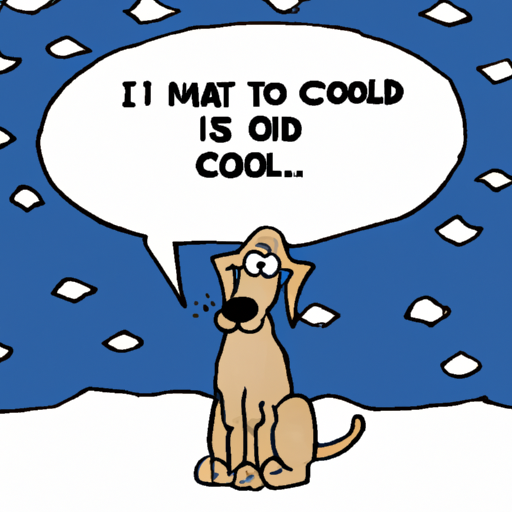Understanding Your Dog’s Shivering
You’ve probably noticed your furry friend shivering during colder months, and wondered, “Do dogs shiver when they’re cold?” The short answer is yes. Shivering is a natural response to cold in most mammals, including dogs. It’s the body’s attempt to generate heat and maintain a stable internal temperature. However, it’s important to know that not all shivering is a sign of being cold.
Causes of Shivering in Dogs
Shivering in dogs can be caused by several factors, not just cold. Here’s a list of some common reasons why your dog might be shivering:
- Cold: Just like humans, dogs can shiver when they’re cold. This is most common in small breeds and short-haired dogs.
- Anxiety or Fear: Dogs can shiver when they’re scared or anxious. This could be due to a variety of reasons, ranging from thunderstorms to separation anxiety.
- Pain or Illness: Shivering can be a sign that your dog is in pain or feeling unwell. It can be a symptom of various illnesses, including kidney disease and pancreatitis.
How to Keep Your Dog Warm
Your role as a caregiver is to ensure your dog is comfortable and safe. If you notice your dog shivering due to cold, here are some tips to keep them warm:
- Provide a warm bed with plenty of blankets
- Keep your home at a comfortable temperature
- Consider doggy sweaters or jackets, especially for small or short-haired breeds
- Limit time outside in cold weather
- Keep them active to generate body heat
When to Seek Professional Help
While shivering due to cold is normal, constant shivering, whether it’s cold or not, should raise a red flag. You should consult a vet if:
- Shivering is accompanied by other symptoms, such as vomiting, diarrhea, or lethargy
- Your dog seems to be in pain
- The shivering doesn’t stop even in a warm environment
FAQS
Q: Do all dogs shiver when they’re cold?
A: Most dogs will shiver when cold, but some breeds are more susceptible than others.
Q: How can I tell if my dog is shivering due to cold or illness?
A: If the shivering is accompanied by other symptoms or doesn’t stop in a warm environment, it could be due to illness.
Q: What can I do to help my shivering dog?
A: You can provide warmth with blankets, sweaters, and a warm environment. If shivering persists or is accompanied by other symptoms, consult a vet.
In sum, shivering is a natural response in dogs when they’re cold. However, it’s vital to distinguish between shivering due to cold and shivering due to other underlying issues. As a caregiver, your job is to keep your dog comfortable and seek professional help when needed.



